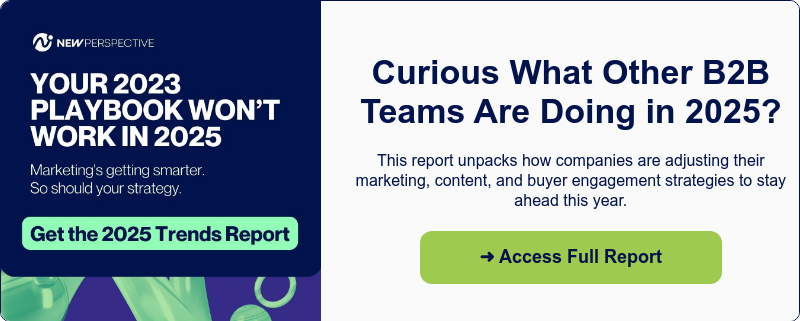Episode Info
How do you build an innovative tech brand in one of the least-glamorous industries imaginable? This week on Green New Perspective, William Gagnon, VP and COO at Excel Dryer, discusses what it means to modernize a two-generation American manufacturer while staying committed to sustainability, U.S.-based production, and product innovation.
Interview with William Gagnon
Dunya Jovanovic: Bill, let’s start at the beginning. What should our audience know about the origins of Excel Dryer?
William Gagnon: Excel Dryer was originally founded in 1963, but it’s been a family-run company since 1997, when my father purchased it. We’ve been committed to American manufacturing from the start. Together, we developed the XLERATOR—launched in 2001—as the first high-speed, energy-efficient hand dryer. That product became the category creator. It disrupted the market and made paper towels look outdated overnight.
DJ: And your role in that story?
WG: I’ve done just about every job here—building dryers on the floor, working in sales, marketing, managing operations. I grew with the company. And over time, that hands-on experience helped shape my leadership style. Now I serve as COO and lead Excel Dryer into its next chapter.
DJ: You've remained committed to manufacturing in the U.S., even as others have offshored. Why?
WG: It’s about quality and control. My father’s vision was to make a quality American made product that was dependable and sustainable. Staying domestic lets us maintain supply chain resilience, avoid tariffs, and support U.S. jobs. During COVID and even now, while competitors faced delays and price hikes, we kept shipping and didn’t raise prices. One of our distributors even said, “You’re the only ones not increasing your pricing.”
DJ: What’s your strategy when it comes to reaching customers?
WG: It’s a hybrid approach. E-commerce and traditional sales channels work hand-in-hand. We’re on Amazon, eBay, and have a strong PPC presence. That helps with international exposure. But we also work through reps and distributors, especially for large-scale installations. It’s about being where customers are and speaking their language.
DJ: How do you position and market a product that most people don’t think about?
WG: Education. We engage architects, designers, and facility managers early. We’re not just talking about drying hands—we’re offering a sustainability story, long-term cost savings, and improved hygiene. For example, switching to dryers reduces operational costs by up to 95%. That’s huge, especially for high-traffic places like airports or stadiums.
DJ: Speaking of hygiene, let’s talk COVID. The hand dryer industry took a hit.
WG: It was tough. There was a lot of misinformation. But we had third-party studies and HEPA-filter data to back up our safety claims. Wet hands spread more germs than dry hands do. We worked to educate our audience through science. And we launched integrated sink systems with soap, water, and hand drying—all in one spot. No walking around the restroom with dripping hands.
DJ: What did your global survey on restrooms uncover?
WG: We were surprised by how consistent the data was. Across five countries, cleanliness was the top concern. Overflowing paper towels were the #1 sign of an unclean restroom. That matters. 80% of people said they might not return to a restaurant with a dirty bathroom. That’s a brand killer. Clean, efficient restrooms = better customer experience.
DJ: Let’s pivot to architects and building designers. How are they responding?
WG: Restrooms used to be an afterthought. That’s changed. Architects are more thoughtful now, especially about hygiene, sustainability, and occupant wellness. We present CEU-accredited courses and work closely with the design community. Our WELL-certified headquarters became a case study in itself.
DJ: Excel has long championed sustainability. Give us the specifics.
WG: We were the first hand dryer company to do a life cycle assessment. Our 2024 report shows up to a 94% reduction in carbon footprint compared to even 100% recycled paper towels. We also publish EPDs and HPDs and are part of the U.S. Green Building Council. Our dryers qualify for the most LEED Credits and WELL Points. And our HQ expansion incorporated smart lighting, advanced air purification, green materials—it’s all intentional.
DJ: That goes beyond product design.
WG: Exactly. It's about brand credibility. When we say we’re green, we prove it—with third-party data, transparent supply chains, and building certifications. We’re not just selling dryers—we’re helping customers meet their own ESG goals.
DJ: What’s on the horizon?
WG: Product innovation. We’re launching a new generation of dryers next year: better design, better user experience, same sustainability DNA and of course, made in America. We’re also expanding global distribution and working with international partners. The next 5–10 years are about scale and impact.
👉 Episode Resources:
- Website: www.exceldryer.com
- LCA Report: https://www.youtube.com/watch?v=yZDUABeIcYc
- Global Survey: https://surveys.exceldryer.com/
🎧 Subscribe to our podcast
💬 Follow GNP on Social




